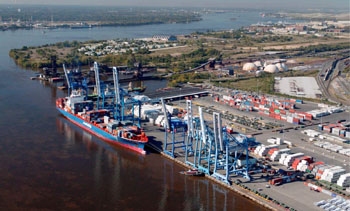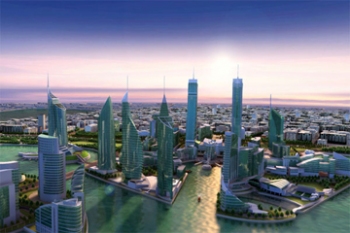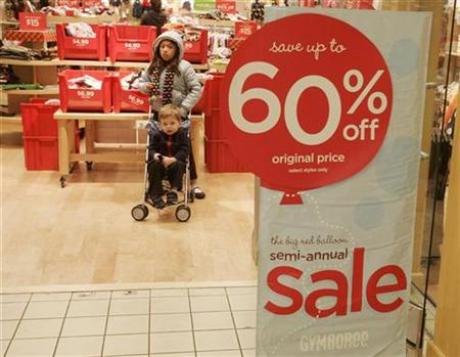Oil has burst above top exporter Saudi Arabia's preferred $70-$80 range and yet OPEC is unlikely to stop the rally, helping to prepare the way for the market to bound above $100 a barrel.
At meetings this month — a full conference of the Organization of the Petroleum Exporting Countries in Quito and talks among Arab oil ministers in Cairo — oil producers stood by OPEC's two-year-old set of output curbs.
Even prices of $100 — not far above a 26-month high of $91.88 hit this week — need not damage the economy and would not mean OPEC should pump more if they resulted from speculation rather than any shortage, ministers and officials have said.
"If it goes to $100 due to speculation, OPEC will not move," OPEC Secretary General Abdulla El-Badri said this month. He also said the organization did not want oil to rise that far.
Analysts are split into those who see fundamental strength as the world economy recovers, driving up fuel consumption, and those who focus on differences between today's relatively well-supplied market and that of 2008, when oil sped to its all-time high of nearly $150 a barrel.
"It remains to be seen whether prices are responding to short-term weather conditions or longer term demand and monetary issues," said Sadad Al-Husseini, an oil analyst and former top official at Saudi state oil giant Saudi Aramco.
"Given the still abundant oil inventories, it wouldn't make sense for OPEC to over-react on what may be a very transient condition."
By the time any extra oil reached consumers, demand could be lower after the peak demand of the northern hemisphere winter.
That would add to oversupply in a market, which for all the nominal strength is still in contango for US crude — a structure in which a relatively cheap front-month contract encourages stock-building.
More bullish analysts say OPEC caution recalls its action ahead of the record bull run of 2008, when it was slow to add oil.
"The signal from the latest meeting in Quito was one in which the producers are still concerned about the downside," Barclays Capital said in a note.
"In our view, that means that the upside is more likely to be controlled reactively with a delay rather than pre-emptively."
It set its price forecast for US crude to 2011 to $91 a barrel, adding that this average figure implied "a sustained period of trading above $100 at points during the year".
Al-Husseini and many inside OPEC have said dollar-denominated oil is cheaper than it seems because the dollar has fallen.
"Prices have not yet risen to $100/barrel and there is nothing mysterious about $100/barrel," he said. "It equates to no more than $80/barrel in 2005 dollars, once current prices are corrected for inflation." In nominal terms, oil has risen 35 percent from a low hit in May and this week's peak was around 15 percent above the price at the end of 2009.
The current rally set in around September after the US Federal Reserve embarked on its latest quantitative easing, which has triggered a wave of buying across financial markets.
Barclays noted total commodity assets under management had reached an all-time high after investors piled in.
Data from US regulator the Commodity Futures Trading Commission released this week showed money managers extended their net long crude oil positions to a record.
"The Fed has in a sense been pushing the speculators. OPEC can very well argue it's not its role to add more oil," said Olivier Jakob of Petromatrix.
Still oil's strength has been modest by comparison with commodities that face looming shortfalls, such as copper, which has touched a series of records.
As oil began to rise in September, traders were contemplating record fuel inventories in the United States, the world's biggest oil user.
Stocks have since fallen, although a deep draw in crude stockpiles could have been in part because of year-end tax positioning. The latest US data will emerge late on Wednesday and on Thursday.
In addition to stocks, OPEC has significant spare capacity, which it has pegged at around 6 million barrels per day (bpd).
Iraq, which is exempt from the OPEC system of supply curbs as it recovers from war and sanctions, has huge scope to grow.
Analysts have disputed it can meet a capacity target of 12 million bpd in around seven years, but even a slower increase would provide much of the extra oil needed to meet any rise in demand.
Its new oil minister said it aimed to increase output to 3 million bpd by the end of 2011, up from around 2.6 million bpd.
A Reuters poll saw the call on OPEC, as opposed to non-OPEC oil, increasing by 600,000 bpd in 2011. Overall oil use would rise by 1.5 million bpd.
Absolute demand would hit a new high, but the rate of demand growth is slower than the record of 3 million bpd in 2004, according to figures from the International Energy Agency.










